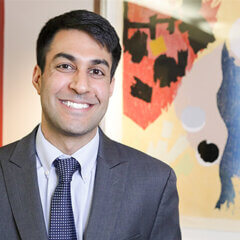By Sharon Krevor-Weisbaum and Neel Lalchandani
Standardized tests are often a necessary (and painful) part of the path to higher education or licensed and professional careers. For people with disabilities, this path is made more arduous when testing entities deny them the accommodations they are entitled to under the law.
The landmark Americans with Disabilities Act (“ADA”) requires testing entities to provide needed accommodations to test takers with disabilities. This requirement applies to all entities that offer examinations concerning applications, licensing, certification, or credentialing for secondary or postsecondary education, professional, or trade purposes. Under the ADA, standardized exams must be administered so that they reflect the test taker’s true ability and aptitude for the material. In other words, every test taker deserves the opportunity to compete on a level playing field.
Accommodations can take many different forms. For instance, a blind high school student taking the SAT or ACT is entitled to an accessible exam, whether through Braille exam booklets or screen reading technologies. A doctor or nurse with an anxiety disorder may be entitled to additional breaks during professional certification or licensing exams. And a prospective lawyer with ADHD and a reading disability may require a distraction-free environment and extended time (e.g., double time) while sitting for the LSAT or bar exam.
Despite the protections afforded by the ADA, it is unfortunately all too common for testing entities to deny needed accommodations to test takers with disabilities. Just recently, the American Association of Medical Colleges, which administers the MCAT, confirmed that it provides accommodations to just 1.3% of examinees—despite the fact that a much higher percentage of the population has disabilities. In reaching their decisions, testing entities sometimes ignore clear evidence supporting the need for accommodations, such as medical recommendations or a test taker’s history of prior accommodations. And testing entities commonly—and wrongly—refuse to grant accommodations because a test taker has previously obtained high marks in school or on past exams.
The process for applying for accommodations can also be difficult to navigate and lengthy, typically requiring personal statements and supporting documentation. In many cases, a testing entity will initially provide only a fraction of the required accommodations or deny them outright with little-to-no explanation. When this occurs, the test taker has only a limited amount of time to appeal the denial of the accommodations.
The attorneys at Brown, Goldstein & Levy have experience assisting test takers seeking accommodations, both locally in the Baltimore and Washington D.C. regions and nationwide, from California to New York. We have helped many clients seek accommodations, including students, doctors, counselors, lactation specialists, certified public accountants, and massage therapists. If you are planning to apply for a testing accommodation or to appeal the denial of such a request, or if you have any questions about your right to disability-related accommodations under federal law, consider contacting us to discuss your situation.
* Content on this website, including blog articles, are proprietary and copyright-protected. If you wish to use all or part of a blog article, we request that you properly attribute the work and include a link to the Brown, Goldstein & Levy webpage on which it appears.

